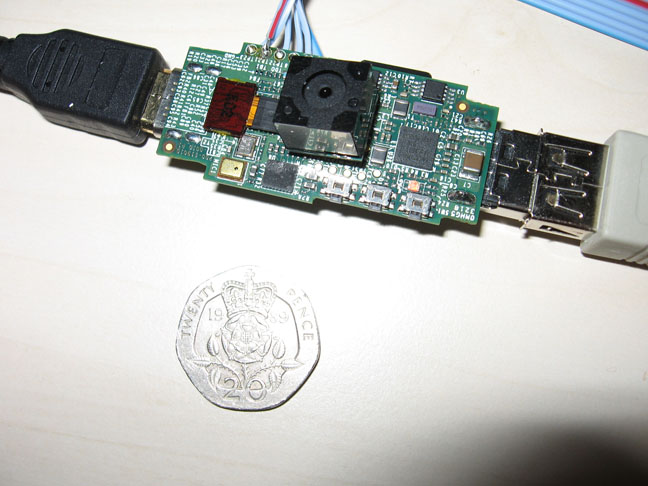The first Raspberry Pi single board computer was officially launched on February 29, 2012. Raspberry Pi Model B included a Broadcom BCM2835 ARM11 processor with 256 RAM, an HDMI port, and the familiar form factor we know today.
But the very first time I wrote about the board was on May 8, 2011, exactly ten years ago, with a post entitled “25 USD ARM11 Linux Computer” showing the prototype of Raspberry Pi USB Computer that looks nothing like what was launched the next year.
This just looked like a stick with an HDMI port on one hand and a USB port at the other. We did not even know it was based on a Broadcom processor at the time. Those were the preliminary specifications:
-
- CPU – 700MHz ARM11 processor
- GPU – OpenGL ES 2.0 capable
- Memory – 128MB of SDRAM
- Storage – SD/MMC/SDIO memory card slot
- Video & Audio Outputs – Composite and HDMI video outputs
- Video support – 1080p30 H.264 high-profile decode
- USB – 1x USB 2.0
- Expansion – General-purpose I/O
Interestingly the plan was to run Ubuntu operating system with programs like Iceweasel, KOffice, or Python, but history ended up being quite different, as Canonical was not interested in helping to port Ubuntu to such a low-end platform, and only changed their mind once more powerful versions were released several years down the road.
The mission has not changed over the years, as David Braben explained the goal was to give a £15 computer on a stick to every child to help them learn to program and better understand computers.

Jean-Luc started CNX Software in 2010 as a part-time endeavor, before quitting his job as a software engineering manager, and starting to write daily news, and reviews full time later in 2011.
Support CNX Software! Donate via cryptocurrencies, become a Patron on Patreon, or purchase goods on Amazon or Aliexpress





